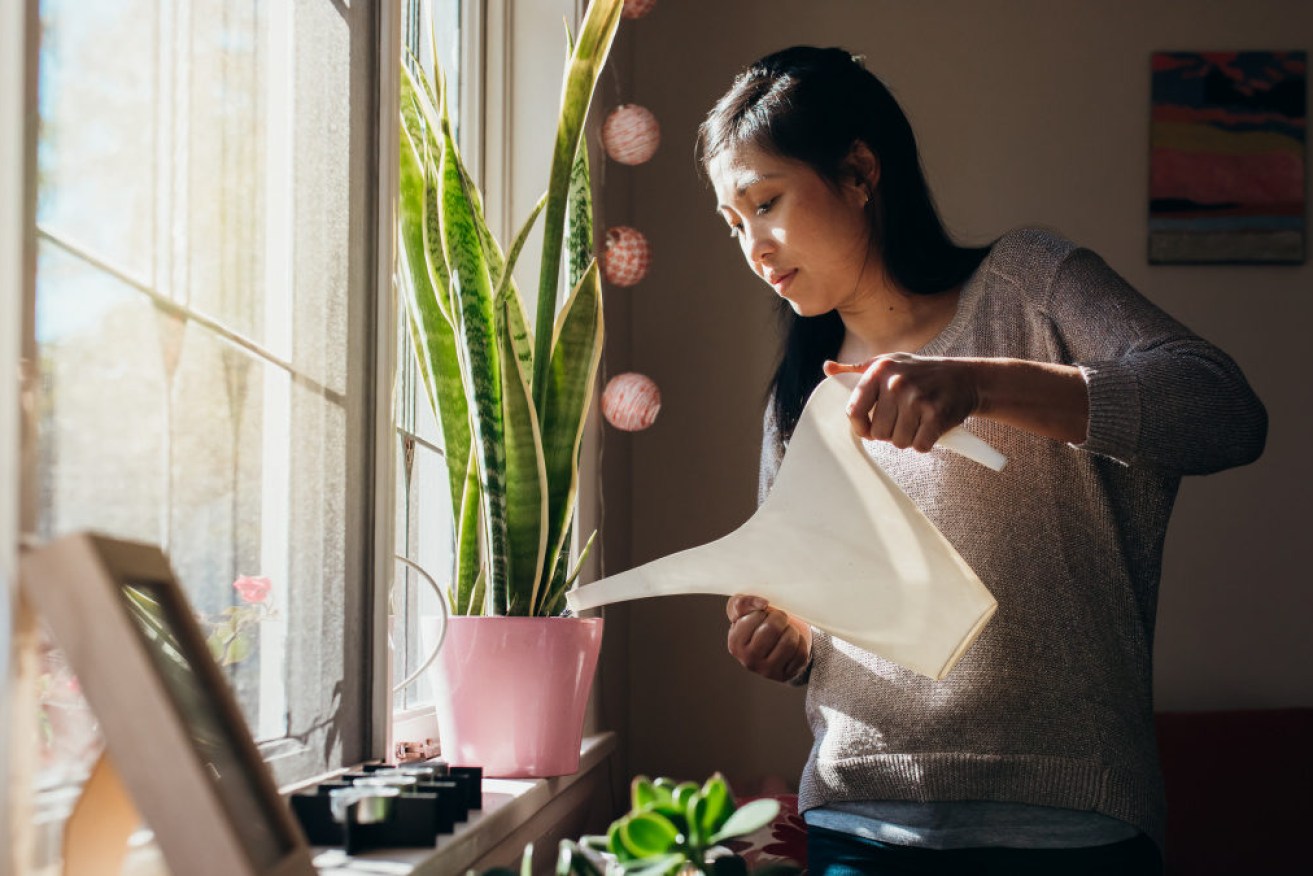Coronavirus anxiety: How to protect your mental health and wellbeing


Nurturing plants and reconnecting with nature is one way to soothe coronavirus-induced anxiety. Photo: Getty
Over the past week, experts have come forward with advice on how to protect your mental health, with a focus on people affected by the Victorian lockdown.
The reality is, much of the advice for people under lockdown is relevant to people nationwide, because the ongoing COVID-19 crisis generates a strong undercurrent of anxiety.
People are living with mixed messages.
The economy’s going better than ever, but the market is anxious about a possible blowout in interest rates.
Even doctors are freaking out with new changes to Medicare rebates they say will cause chaos for patients.
News from overseas doesn’t help.
In the UK, where vaccination is going well, there’s huge anxiety over the Delta variant that’s running out of control.
India has been turned into one big crematorium.
On the upside, the lockdown has prompted greater number of people to swallow their concerns and hesitancy and be vaccinated.
Meanwhile, we all have our private worries that maybe things could fall apart at any moment.
In the old days we were encouraged to hand over our anxieties to God, and some people still do.
The rest of us need to take charge of our lives as best we can, and that includes protecting our mental and emotional health.
Mental health help in a pandemic
There are many organisations and stories like this one offering advice, with plenty of overlap.
We’ve drawn on guidance from Beyond Blue, the Black Dog Institute, The Conversation and the World Heath Organisation for the following:
- Have a routine. This is the big one. It sounds boring but it amounts to focusing on what you can control in you life. They’re all small but significant things. Getting up and going to bed at similar times every day helps protect against depression. Keep up with personal hygiene, eat healthy meals at regular times, and exercise regularly. Allocate time for working and time for resting. On a day-to-day basis, you’re exerting greater control over your life, which has a positive psychological payoff
- Keep informed, but don’t overdo it. The WHO says to follow trusted news channels, such as local and national TV and radio, and pay attention to health authorities. However, try to reduce how much you watch, read or listen to news that makes you feel anxious or distressed. Seek the latest information at specific times of the day, once or twice a day if needed
- Maintain social contact. Zoom dinners and catch-ups have transformed our social landscape. They’re terrific in lockdown, but they’re also a great way to keep in touch with friends and family who live some distance away. And when you’re having your one-on-one phone calls – and you’re asked by a good friend, “How are you?” – keep it real. Say how you are feeling
- Put some good in the world. Use social media accounts to promote positive and hopeful stories. Reach out to your neighbours, especially the elderly. Offer to lend a hand
- Get outside in nature. For a start, take up gardening. It’s like meditating without the consciousness. Evidence abounds that walking in green spaces, such as public parks, boosts mental health. It’s been shown that kids who don’t get access to green spaces will tend to languish, those who will prosper
- Be aware of your screen time. This deserves special mention because hours spent on online works against your physical and mental health. Take regular breaks
- Shrug off the guilt. One of the common messages that came out of the early lockdown was that people felt guilty, thinking they were letting their kids down. They took the blame because the kids couldn’t see their friends, keep up with schoolwork, play sport – and do all the things they enjoyed. With the uncertainties of COVID-19, it’s a situation that could play over and over. Know that you’re doing your best and take some pride in it.
And, of course, if you find you’re struggling, get some help.
Lifeline (13 11 14) and Kids Helpline (1800 55 1800) can be accessed for phone and online counselling.








